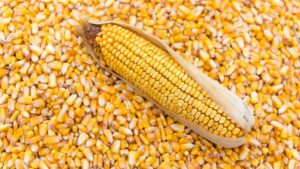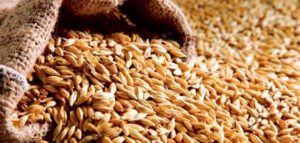
In January-November of this year, Ukrainian mining companies reduced exports of iron ore raw materials (IORM) in physical terms by 4.9% compared to the same period last year, from 30 million 250,394 thousand tons to 28 million 774,717 thousand tons.
According to statistics released by the State Customs Service (SCS) on Friday, foreign currency proceeds from iron ore exports decreased by 14% during this period, from $2 billion 530.162 million to $2 billion 176.431 million.
Exports of raw materials were mainly to China (44.94% of shipments in monetary terms), Slovakia (17.24%), and Poland (16.26%).
In addition, in January-November 2025, Ukraine imported mineral resources worth $92,000 in the amount of 128 tons from the Netherlands (47.83%), Italy (38.04%), and Norway (14.13%), while in the same period last year it imported 2,031 tons worth $409 thousand.
As reported, in 2024, Ukraine increased its exports of raw materials by 89.8% compared to 2023, to 33 million 699.722 thousand tons, and foreign exchange earnings grew by 58.7%, to $2 billion 803.223 million UAH.
In 2024, Ukraine imported mineral resources worth $414,000 in a total volume of 2,042 tons, while in 2023, 250 tons of these raw materials were imported worth $135,000. In 2023, exports of raw materials decreased by 26% in real terms compared to 2022, to 17 million 753,165 thousand tons. Foreign exchange earnings amounted to $1 billion 766,906 million (a decrease of 39.3%). A total of 250 tons of raw materials were imported for $135,000.

The US Department of Agriculture (USDA) has raised its forecast for global corn exports in the 2025-2026 marketing year by 1.63 million tons to 205.10 million tons, despite the expected reduction in Ukrainian supplies.
According to the December report, with global exports growing, the estimate of global corn carryover stocks, on the contrary, has been reduced by 2.19 million tons to 279.15 million tons, reflecting more active use of grain and the maintenance of a fairly tight supply and demand balance.
For Ukraine, the USDA has lowered its corn harvest forecast from 32 million tons to 29 million tons due to a reduction in acreage and yields, as well as difficult weather conditions during harvesting. The export forecast has been lowered from 24.5 million tons to 23 million tons, domestic consumption from 7 million tons to 6 million tons, and carryover stocks from 1.55 million tons to 0.85 million tons. This means that additional growth in global corn exports will be provided by other major market players.

In its December report, the US Department of Agriculture (USDA) increased its forecast for global wheat exports in the 2025-2026 marketing year (MY) by 1.5 million tons to 218.71 million tons.
At the same time, the USDA raised its estimate of global wheat carryover stocks at the end of the season by 3.44 million tons to 274.87 million tons, indicating some easing of tensions in the global market.
With regard to Ukraine, the agency maintained its estimate of the wheat harvest at 23 million tons, but reduced its export forecast from 15 million tons to 14.5 million tons due to an increase in domestic consumption from 7.1 million tons to 7.6 million tons. This means that most of Ukraine’s wheat will be directed to the domestic market, while other supplier countries will provide the growth in global exports.

The dairy industry, which is one of the key sectors of Ukraine’s agricultural sector, has retained its production base and is gradually recovering despite the full-scale war, Deputy Minister of Economy, Environment, and Agriculture Taras Vysotsky said at the XVII All-Ukrainian Conference “Dairy Business-2025” in Kyiv on Thursday.
The deputy minister noted that in January-October 2025, Ukraine produced almost 5.9 million tons of milk.
“An important trend is the growing role of agricultural enterprises: they already account for 45% of production, and their production volumes have increased by 7.6%, despite the overall reduction in livestock numbers. Quality is also improving: more than 55% of milk sent for processing meets the European ‘extra’ standard,” he wrote on Facebook.
Vysotsky emphasized that the industry is also actively working in foreign markets. In the first 10 months of 2025, exports of dairy products grew by almost 9%. Sixty-four Ukrainian companies have permission to export dairy products to the EU, 40 of which are milk processing plants.
“Despite the challenges, we are maintaining the stability of current indicators and forming a resource for further growth – this is our realistic and strategic focus. The next step is investment, modernization, and a clear move towards integration with the European market,” the deputy minister concluded.